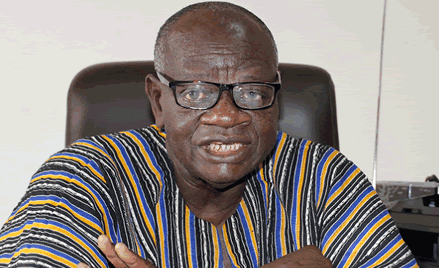Office of the Administrator-General identifies Presidential Transition flaws

The Office of the Administrator-General of the Presidential Estates Unit (OAG), has identified some gaps that impede the smooth transfer of political power from one government to another.
Mr David Yaro, the Administrator-General, who made this known at a capacity-building workshop in Accra on Wednesday, said the OAG contracted a consultant to review the 2017 Presidential Transition process in order to resolve the acrimony that characterised the process.
He said upon painstaking assessment of this year’s Presidential Transition, the Consultant came up with a number of findings, including; lack of a comprehensive inventory of State assets, limited resources of the OAG to effectively carry out its mandate and the late submission of handing-over notes by the outgoing administration.
The rest are; late awarding of contracts and policies, as well as key appointments made in the last few days of the previous government, which significantly impacted on the incoming administration.
In view of this, Mr Yaro said, the Consultant proposed a number of measures that should be undertaken to address the shortfalls.
These include; hooking the OAG onto the Ghana Integrated Financial Management Information System (GIFMIS) platform, in order to capture all Government procurements undertaken by the Ministries, Departments and Agencies (MDAs), Regional Coordinating Councils (RCCs) and Metropolitan, Municipal and District Assemblies (MMDAs) operating under the GIFMIS platform.
Mr Yaro therefore, entreated all MDAs and MMDAs that were not on the GIFMIS platform to get enrolled on it by the end of the year.
He said: “The OAG has since taken some measures to ameliorate these shortcomings and to ensure that come January 2021, the challenges that came the way of the performance of the OAG are minimised, if not completely eliminated”.
The purpose of the Presidential Transition review is to identify gaps, draw lessons and make recommendations that would guide future transitions.
Mr Yaro said the training was one of the steps towards meeting the challenges of the OAG and equip Asset Managers of the respective MDAs with the requisite knowledge on how to produce a credible database register.
It is expected that after the training, every MDA would have a credible Asset Register, upon which the OAG could rely on for the compilation of a comprehensive database for the country, he said.
“It is presumed that at the end of this workshop, one can say that some form of Performance Indicators have been set to pave way for a Performance Agreement between the OAG and the respective MDAs.
“This will serve as basis for future monitoring and evaluation exercises,” he stated.
Nana Kwasi Agyekum Dwamena, the Head of the Civil Service, said the Service would co-operate with all the relevant institutions to ensure that they changed the negative narration of suspicion, which often characterised the Presidential Transition processes in the country and ensure trust and transparency.
He said government was committed to changing the report of the dissipation of the state resources, which the Auditor-General’s Annual Report exposed, and ensure value for money of all public transactions.
Mr Dwamena noted that the Service would support the drafting of policy document that would give clear vision and mission to the OAG aimed at ensuring the compilation of a credible Asset Register for the country.
The Office of the Administrator-General of the Presidential Estates Unit operates in accordance with the demands of the Presidential Transition Act, 2012, (Act 845).
The Office is supposed to compile credible data on all State and government assets and property and facilitate their handing-over from one government to another during Presidential Transitions.
Source: GNA
